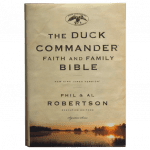Show me a person without insecurities and I’ll show you a liar.
Whether you’re an artist or a teacher, a preacher or athlete, a business tycoon or world-famous musician, we have all things we’re insecure about, even if we’re not willing to admit to them publicly.
Like every other writer that’s ever lived, I can become incredibly insecure about sharing my thoughts with the world. The mere prospect of criticism of something I put some much time and so much of myself into is terrifying. What if people don’t like it? What if it doesn’t make as much sense as I thought it did? What if there’s a typo?!
I encounter the same insecurities when I speak. It doesn’t matter how much time and preparation I put into what I’m going to say, the moment I step on the platform, I’m instantly bombarded by thoughts of failure and embarrassment. What if I forget what I want to say? What if I stumble over my words? What if that Red Bull I just had comes back to haunt me and I accidentally let out the loudest burp these people have ever heard?!
Whether founded or not, our fears and insecurities can be so crippling that they keep us from even trying, let alone taking the risks necessary for success. In our vain pursuit of perfection, we too often convince ourselves that unless we can produce a masterpiece, the potential for criticism makes taking a risk not worthwhile.
But the truth is, no matter how wonderful the book we write, the sermon we preach, the lesson we teach, or the song we sing actually is, there will always be critics.
Even if what we do turns into the stuff of legend.
You would be hard-pressed to find anyone today that wouldn’t agree that Abraham Lincoln was one of greatest presidents, if not the greatest president our country has ever seen. And even though there might be many among us still scarred from forced elementary school recitations of the Gettysburg Address, it is universally hailed as one of the greatest speeches ever delivered.
Or at least it is today.
But that wasn’t the case 150 years ago when Lincoln first delivered his famous address.
Though there were certainly many who immediately recognized the greatness of Lincoln’s humble speech, his now timeless words were also met with fierce and degrading criticism. In perhaps the most infamous assessment of Lincoln and his Gettysburg Address, the Chicago Times had this to say,
The cheek of every American must tingle with shame as he reads the silly, flat, dish watery utterances of the man who has to be pointed out to intelligent foreigners as the president of the United States.
I’ll never write words as beautiful or deliver a speech as eloquent as Lincoln did on that hallowed ground so long ago, but I do find an odd sense of comfort in the knowledge that even masterpieces are not without their critics.
It’s not that I think I have or ever will do anything that rises to the level of being called a masterpiece. But accepting the fact that nothing I ever do will ever be good enough for everybody has a liberating effect for me. That acceptance doesn’t magically rid me of all of my insecurities, but it does give me just enough confidence to try.
I may still fall flat on my face, my writing may turn out to be genuinely terrible, and someone might fall asleep while I’m preaching, but even if I somehow found a way to write a Pulitzer Prize-winning piece of literature or gave a speech that children a hundred years from now are forced to recite at school, it wouldn’t keep the critics away.
So why not try?
Why not take the risk and write what I want to write and say what I want to say and do what I want to do?
Why not embrace the inevitability of failure in the eyes of some for the chance of doing something truly great?
Greatness will almost certainly allude me forever and that’s ok. But I’ll never stand a chance at doing something worthwhile if I let the fear of criticism keep me from trying.

 (
(










